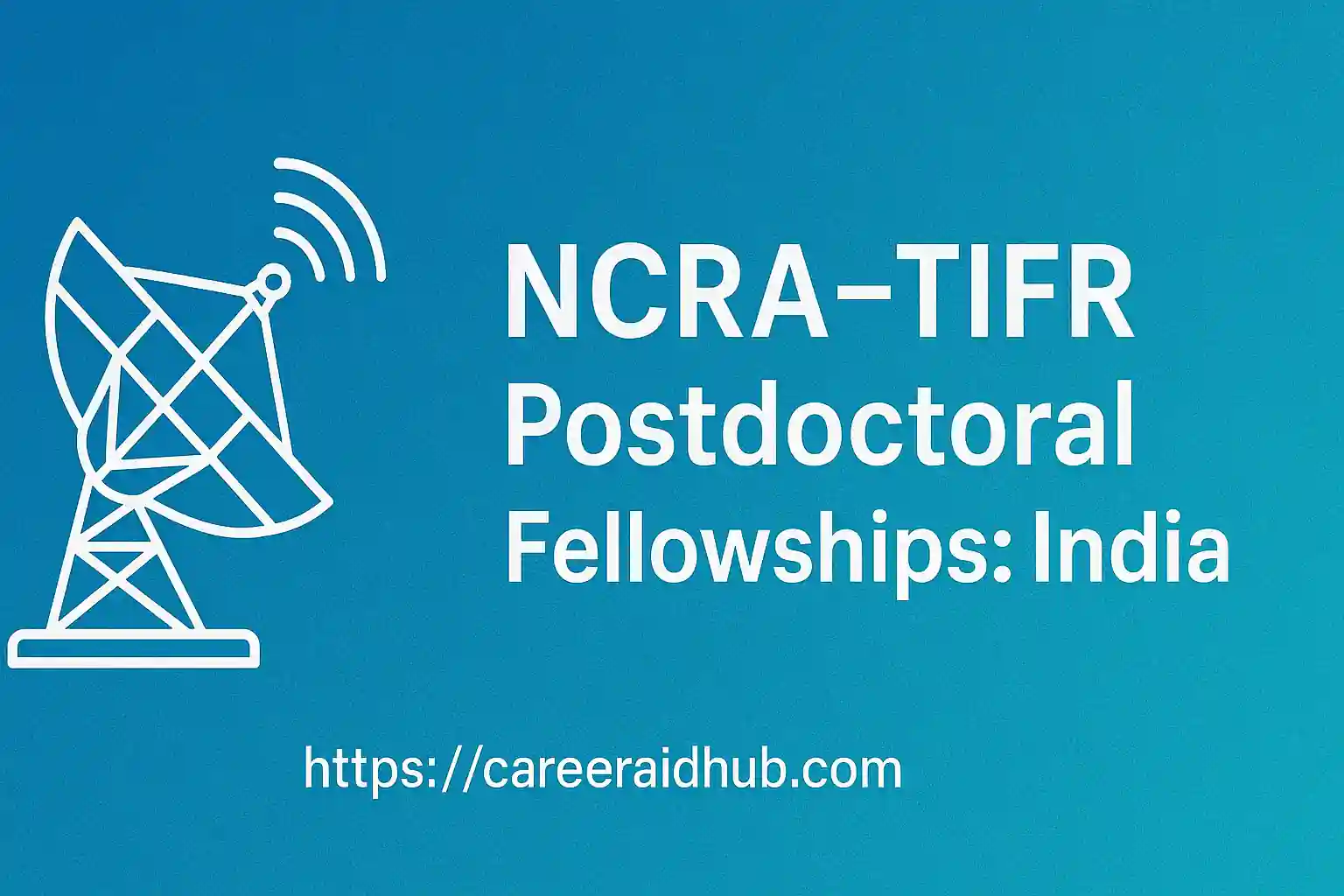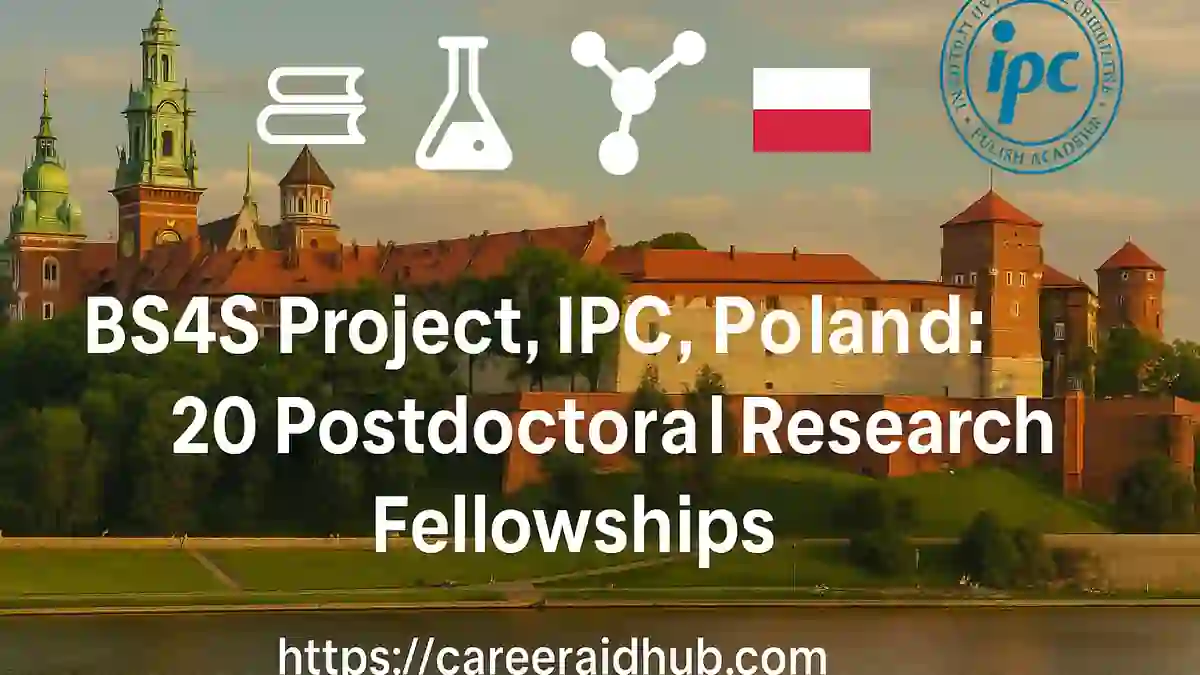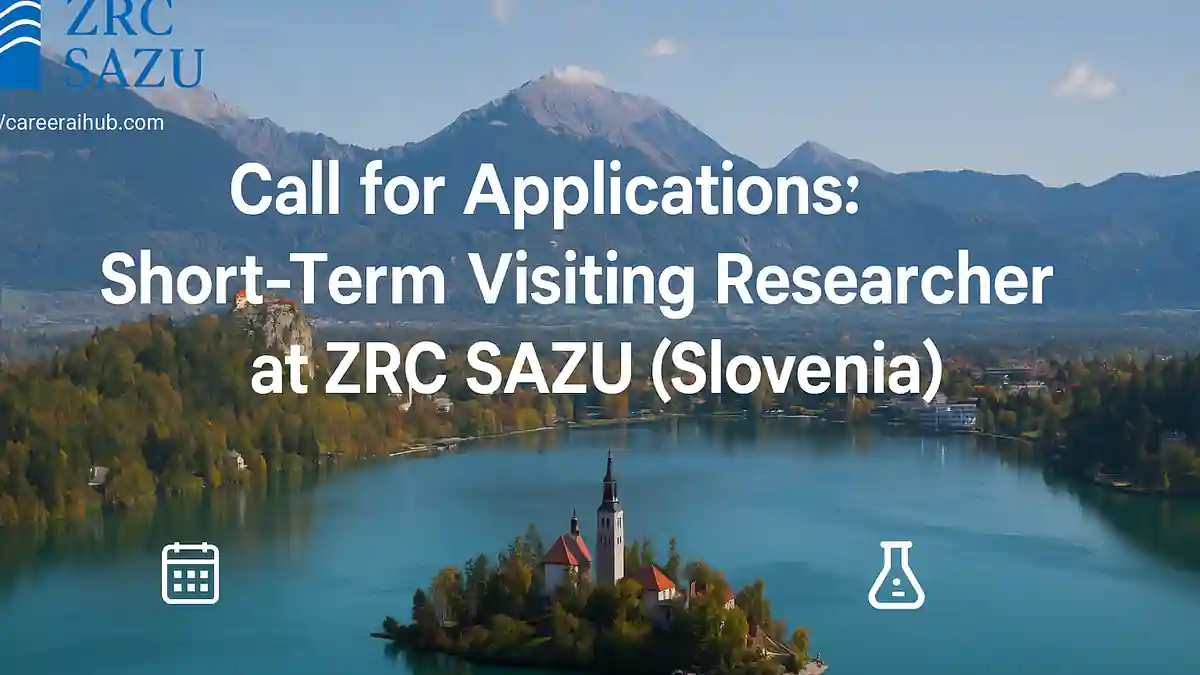Imperial College London’s Global Development Fellowship: High-Impact Short Placements for PhD Scholars from LDCs & LMICs
Introduction
Imperial College London’s Global Development Fellowship offers short, intensive research placements designed to fast-track doctoral progress while strengthening institutional capacity in the Global South. Fellows from Least Developed Countries (LDCs) and Lower-Middle Income Countries (LMICs) spend 2–4 months at Imperial, working with a named host supervisor on a tightly scoped plan that advances their PhD, contributes to the Sustainable Development Goals (SDGs), and seeds durable partnerships for their home departments.
A fully funded 2–4-month research placement at Imperial College London for PhD scholars from Least Developed and Lower-Middle Income Countries. Build skills, accelerate experiments, and forge lasting collaborations aligned to the SDGs—without bench fees. Applications close in November 2025; placements run March–July 2026.
Why this programme matters
Short, targeted placements are often the difference between a stalled method and a publishable result. By removing bench fees and covering essential costs, the Fellowship ensures scholars can focus on experiments, analysis, method transfer, and co-authorship—and then carry skills home to multiply impact through teaching, lab set-ups, and new collaborations.
What the Fellowship Offers (Funding & Support)
The Fellowship combines practical research access with comprehensive financial
Duration: 2–4 months (on-campus at Imperial)
Monthly stipend: £1,900
Arrival allowance: £200 (one-off)
Travel: Return economy-class flights
Visa: Application and BRP costs covered, plus support for travel to visa centres
Fees: Bench/tuition fees are waived by host departments for the placement period
Accommodation: Fellows arrange housing in London; Imperial provides practical guidance and pointers to reputable options
What this means for you: accessing equipment, platforms, data, and specialist training you cannot easily secure at home—without hidden lab costs. The stipend helps meet London living expenses during a short, intensive workplan.
Tip: Begin housing research early. Explore Imperial’s accommodation advice and student communities, then shortlist 2–3 realistic options that fit your budget and commute.
Who Can Apply (Eligibility)
You are a strong fit if you meet all the following:
Current PhD enrolment (you will be ≥12 months into your PhD by the placement start)
Citizenship and residence in a country on the OECD ODA Recipients
List under LDC or LMIC categoriesHome institution located in an LDC or LMIC
Two letters secured:
Letter of Recommendation from your PhD supervisor confirming readiness and functional English proficiency
Letter of Support from an Imperial host supervisor (countersigned by the Head of Department), outlining feasibility, supervision, and training arrangements
Not eligible: applicants with dual British citizenship, or those studying/residing in upper-middle or high-income countries. English test scores are not required; the host evaluates proficiency based on academic interaction and the proposed work.
Key Dates and Timing
For the 2025–26 round:
Application deadline: Friday, 28 November 2025 (23:59)
Placement window: Start in March 2026 and finish by 31 July 2026 (the end date is fixed and cannot be extended)
Looking ahead (next cycle): Based on past cycles, expect the next call to open around October–November 2026 with placements likely between March–July 2027. We will update soon.
Planning tip: Work backwards from 31 July 2026. If you need ATAS, ethics clearance, or safety
inductions, pad your timeline accordingly.
What You’ll Do at Imperial (Scope & Outputs)
Successful applications show a tight fit between the host lab’s capabilities and the specific bottleneck in your PhD. Typical aims include:
Finalising a key experiment (e.g., a validation run, scale-up, or robustness checks)
Learning a specialist technique or platform not available at your home institution
Co-developing a dataset, pipeline, or protocol to be transported back home
Drafting a joint paper or results section, including figure generation, statistical checks, and methods write-up
Formalising a long-term collaboration (e.g., follow-on grant idea, exchange visits, or co-supervision track)
A balanced plan features 3–5 concrete deliverables (e.g., “validated assay + repository protocol + draft Results section + lab training notes”). Build in time for group meetings, seminars, and skills sessions across Imperial’s departments and networks aligned to your topic.
How to Apply (Step-by-Step)
1) Identify and engage a suitable Imperial host
Scan relevant departments, centres, and research groups. When writing to a prospective host:
Lead with a one-paragraph problem statement—the bottleneck your PhD faces
List 3–5 specific tasks for a 2–4-month window
Propose measurable outputs (dataset, method note, figure set, protocol draft)
Attach a 2-page CV and
a one-page PhD summary (aims, progress, methods, obstacles)
2) Secure the two letters
Imperial Letter of Support (signed by the Head of Department) describing supervision, lab access, and training
Home supervisor recommendation confirming readiness, alignment, and English proficiency
3) Complete the online application form
Prepare clear, succinct answers to the standard prompts:
Lay summary of your PhD (≈200 words)
Placement plan and added value to your thesis (≈500 words)
Skills, competencies, and networks you will gain (≈250 words)
4) Plan logistics in parallel
Some fields require ATAS; applications can take time. Start ATAS, visa, and housing processes while you finalise your form so that—if selected—you can start on time and finish by 31 July 2026.
What Reviewers Are Looking For (Selection Lens)
Panels assess fit, feasibility, and value:
Alignment: Does host expertise map cleanly to your bottleneck?
Feasibility: Is the 2–4-month scope realistic with clear milestones?
Deliverables: Are outputs specific, transferable, and time-bounded?
Capacity building: Will you teach, document, or replicate methods at home?
Sustainability: Is there a credible path to follow-on papers, grants, or exchanges?
Governance: Are ethics, data sharing, risk, safety, ATAS/visa addressed?
Backlink magnet: Include a mini-Gantt in your application and a one-page risk register with mitigations (e.g., substitute assay, remote analysis pathway).
Pro Tips for a Winning Application (Actionable)
Start with the problem; end with the product. Open with the barrier blocking your thesis; close with the artifact you will ship (e.g., validated protocol + figure set).
Co-design with the host. A 20-minute call can right-size scope, inventory consumables, and book instrument time.
Anchor to SDGs and local need. Spell out who benefits at home—students, clinics, startups, or public agencies.
Multiply impact. Plan a methods workshop for your department and upload a protocol to a trusted repository (where appropriate).
Evidence feasibility. Confirm equipment access and onboarding (safety, data, ethics), and pre-book critical slots.
Front-load ATAS/visa tasks. If your area triggers screening, submit immediately after internal approvals.
After the Fellowship: Lasting Impact
The programme is designed for durable value, not a one-off visit. Alumni commonly:
Return with documented methods and portable pipelines that become departmental standards
Co-author papers and preprints, often using data generated during the placement
Launch joint proposals or student exchanges to sustain momentum
Establish training loops (journal clubs, code walkthroughs, protocol bootcamps) to lift broader lab capacity
Quick Checklist Before You Submit
You meet country and residency criteria (LDC/LMIC; DAC list).
You will be 12+ months into the PhD by March 2026.
Imperial host secured; Head of Department sign-off planned.
Home supervisor letter drafted and aligned.
Workplan scoped to 2–4 months with 3–5 deliverables.
ATAS (if needed), visa steps, and housing timelines mapped.
Budget reality-check for London living costs.
Final Word
Treat the Fellowship as a bridge between your thesis goals and the capabilities that can unlock them. Write to a real bottleneck, design a doable plan, and show how you will transfer skills and systems back home. Apply by 28 November 2025; placements run March–July 2026. The right 2–4 months now can set up the next two–four years of your research.
Official citation (conclusion): Full details, eligibility, and application process are on Imperial College London’s official Global Development Fellowship page (see References).
Feature Summary (Copy-Paste Ready)
| Feature | Details |
|---|---|
| Programe | Global Development Fellowship — Imperial College London |
| Host Country | United Kingdom (London) |
| Funded By | Imperial College London (Global Development Hub and host departments) |
| Duration | 2–4 months |
| Study Mode | Full-time, on-campus placement |
| Eligibility | Current PhD scholars (≥12 months) who are citizens/residents of LDC/LMIC countries and enrolled at universities located in LDC/LMIC; two letters required (home supervisor; Imperial host with HoD countersignature) |
| Financial | £1,900/month stipend; £200 arrival allowance; return economy flights; visa/BRP costs; bench/tuition fees waived |
| Fields | All disciplines aligned with host expertise and SDG-relevant aims |
| Deadline | 11/28/2025 |
| Official | Iimperial-Global-Development-Fellowships |
Frequently Asked Questions
Eligible PhD scholars study and reside in LDCs or LMICs, are 12+ months into their PhD, and can secure home supervisor and Imperial host support.
The fellowship typically covers a monthly stipend, arrival allowance, return economy flights, visa costs, and waives bench or tuition fees during the 2–4-month placement.
Placements usually run for 2–4 months, full-time and on campus, aligned tightly with the host lab’s facilities, supervision, and milestone-driven research plan.
Some sensitive subjects require ATAS. Apply early, because processing can take time. You cannot start your placement until ATAS approval arrives, where applicable.
Search relevant departments and research groups. Email a concise pitch: thesis focus, bottleneck, proposed tasks, expected outputs, and timeline. Request a countersigned support letter.
Formal test scores are generally not required. However, your Imperial host evaluates functional English proficiency through academic communication, proposed tasks, and supervisor references.
Show problem–solution fit, realistic 2–4-month milestones, specific outputs, host alignment, ethics readiness, and plans to transfer skills and methods back to your home institution.
The fellowship does not typically fund housing. You arrange accommodation independently. Nevertheless, Imperial offers practical guidance and signposts to housing resources and support.
Yes, you can reapply. However, strengthen your proposal: refine research aims, confirm equipment access, secure earlier letters, and demonstrate clearer deliverables with feasible timelines.
Begin immediately after a conditional offer. Moreover, parallel-track ATAS (if needed), visa steps, and housing searches to ensure you start and finish within the published window.










